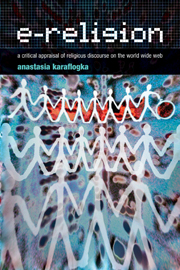4 - Theory
Summary
Introduction
Since its development and rapid expansion, the Internet and its by-products (WWW and cyberspace) have generated a considerable number of discourses which derive from its capacity to initiate new forms, not only of communication but also of socio-economic, cultural and political interactions.
Although sometimes exaggerated, Internet rhetoric presents a number of approaches to, and perceptions of, the medium's actual and potential functionalities, which address their socio-economic and political ideas, as well as their religious, cultural and metaphysical concepts. Statements such as the “unprecedented impact of technology on society and culture” the “magnitude of the Internet” the “new social, economic and political transformations” and the “globalization of resources and commerce” are, although to a lesser degree than before, still in the agenda of policy makers, academic institutions and society in general. These approaches and perceptions comprise the conceptual body upon which different agents have based their cybertheoretical foundation. In order to develop an understanding of why the different religions, individuals, New Religious Movements (NRMs) and so forth are using the Web in the way they do, it is necessary to examine the diverse theories and perceptions of communication, technology and cyberspace.
The main purpose of this part of the study is, therefore, to provide a succinct account of the theoretical framework found in both academic and popular discourses, and also to examine the extent to which the socio-political and religious theories that circumscribe digital technologies may explain:
The embracement of ICTs, especially the Web, by institutionalized religions, non-institutionalized religions and NRMs, and the form of this embracement.
[…]
- Type
- Chapter
- Information
- E-ReligionA Critical Appraisal of Religious Discourse on the World Wide Web, pp. 86 - 133Publisher: Acumen PublishingPrint publication year: 2007

